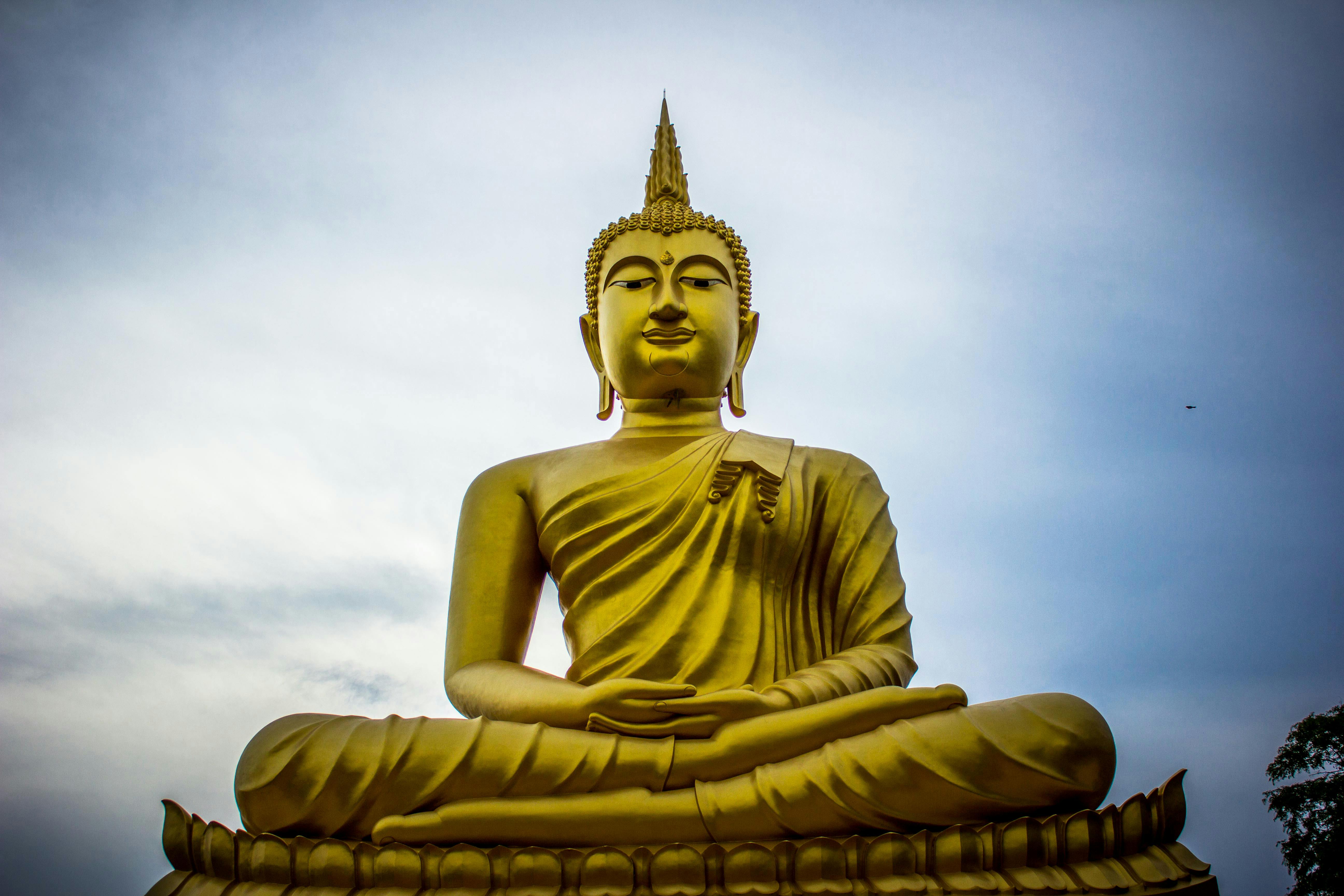Why I Read Buddhist Texts and Colgate Students Should Too

Buddhism is a religion which was founded by Siddhartha Gautama (also known as “The Buddha”) in the 5th century B.C. It is also the 4th largest religion in the world with an estimated 500 million followers, making it larger than Judaism by roughly 486 million people. In spite of this, many Americans (like myself a year ago) are unfamiliar with Buddhism, even on a basic level.
A year ago, I was one of those people who had very little knowledge on the topic of Buddhism. That all changed after a friend of mine introduced me to the core ideas of the religion. The sayings which he read to me felt so refreshing and new compared to the judeo-christian ideals which I had grown up with. I was never taught about Buddhism during my academic career, so I decided to learn about the religion for myself. I was so intrigued by what I learned that I decided to commit myself to reading a new saying every morning, a habit which I continue to this day.
As I stated, Buddhism is different from most of the religions found in the non-asiatic world. In Buddhism, there is no central deity to whom followers worship. Instead, Buddhism largely focuses on personal improvement, and the search for nirvana. As such, many consider it to be less like a religion and more of a guiding life philosophy, especially in the non-asiatic world.
In either case, Buddhism has had a massive effect on the world at large, especially in the countries of India and China, where it has shaped local philosophy and culture for centuries. Even in American and European societies, the Buddhist traditions of meditation and mindfulness can be found in office spaces and classrooms alike.
Despite the obvious influence Buddhism has had in shaping our global culture, Buddhist texts are rarely taught in western curricula, if they are taught at all. Here at Colgate, Buddhism is barely an afterthought outside of the religion department and student groups. If students want to engage with the religion in the classroom, their options are limited to two courses: Buddhist Traditions or Tibetan Buddhism. Neither of these courses were offered in the Spring or Fall 2020 semesters, meaning the only classes which explore Buddhist texts are those which also cover a broad assortment of other topics, such as Chinese Ways of Thought.
Most of these other courses are not designed to look at Buddhist texts individually, instead incorporating them as a part of the course’s larger theme. In addition, these courses often require students to go out of their way to encounter Buddhist texts, as most students at Colgate do not pursue religious studies degrees. On the other hand, Judeo-Christian texts will be encountered by every Colgate student as part of one of Colgate’s required courses.
So how can we expose students to Buddhist texts without having them enroll in a class which is often inconvenient to take? The answer: CORE 151.
CORE 151, currently known as Legacies of the Ancient World, is a course which all Colgate students must take by the end of their sophomore year as part of the “Core Curriculum”. The course is primarily centered around ancient texts from the Mediterranean and Middle East such as The Bible or Homer’s The Odyssey. In recent years, the course has come under criticism by the student body for the Eurocentric history and worldview it promotes. As a result, the Core Revision Committee (a group of faculty who propose potential changes to the Core Curriculum) is considering drastic changes to the course, including replacing it entirely.
This potential change in the course provides the perfect opportunity to incorporate a Buddhist text into the broader Colgate curriculum. The addition wouldn’t feel out of place, as there are already religious texts which are required to be read in all sections of the course. And by making a Buddhist work a required text in the course, the class would become less Eurocentric overall. It would also provide students with the opportunity to explore one of the largest religious philosophies in the world, one with which they most likely have little to no experience with.
Ultimately, it is up to the Core Revision Committee and Colgate faculty to decide the fate of CORE 151. The change may be subtle, as it was in 2009, or it may be drastic and result in the creation of an entirely new course. In either case, I believe that the University would benefit from introducing the wisdom of Siddhartha Gautama to the student body at large.
Written by: Cade Smith, Class of 2024